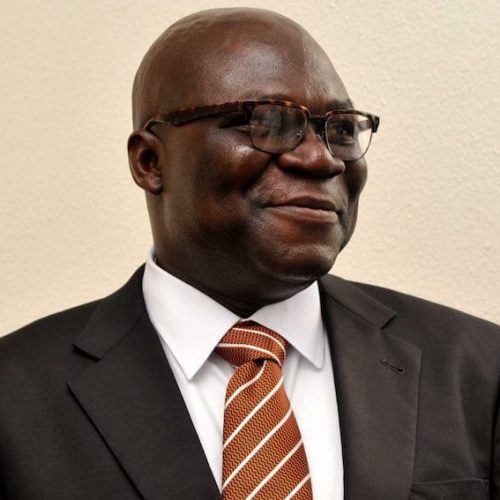
Cars queue to buy petrol at the NNPC Mega petrol station in Abuja, Nigeria March 19, 2020. REUTERS/Afolabi Sotunde
The Federal Government can no longer continue to shy away from frontally confronting the absurdities inherent in the country’s downstream petroleum sector that has witnessed galloping prices in the midst of huge and endless government subsidy. It is a grave anomaly for Nigeria to be a leading exporter of crude oil and a leading importer of petroleum products. That situation assumes total unacceptability with the fact that oil has been the mainstay of the country’s economy for decades, while refineries set up by government continue to consume fortunes of the nation’s resources without corresponding delivery of products.
Options open to Nigeria are many, the most attractive being to refine her crude for consumption of her citizens. Sadly, that task has been bedeviled with lots of complications that have made it unrealisable for about 40 years. But while upward movement in pump price of petroleum products may appear to government as the simple solution to fuel subsidy, in the face of an epileptic and largely failing economy, it is also the most insensitive to the plight of Nigerians with very dangerous consequences for the country. This dilemma notwithstanding, the right pump price debate reminisce an age-long mismanagement of the resources, inefficiency of the handling agencies and successive administrations that continued to give credence to Augean stable in the oil sector. Further frustrating a mass of distressed Nigerians cannot be the right intervention. But a concerted approach to speedily refine products locally, create viable alternatives to energy demands and wean off economic dependency on oil will save the country from impending socio-economic disaster.
Nigeria today is confronted by two hard choices – to either sell imported petrol at the landing cost or subsidise the high differential. With the exchange of Naira-to-Dollar on a free-fall and forex unavailable for importers, the Nigerian National Petroleum Corporation (NNPC) is the sole supplier of petroleum products, selling at N162 per litre when the landing price is N234 per litre. NNPC has returned to the old subsidy era, paying N120 billion monthly to subsidise the estimated 60 to 72 million litres of petrol that the country consumes daily. The Federal Government lately hinted on the plan to retain subsidy on petrol for the next six months, at the cost of a whooping N720 billion, as it buys time to consult with stakeholders on the fate of deregulation.
Except the price of crude oil in the world market crashes far below the current $63 per barrel, a pipedream actually, Nigeria would continue to be in dire straits of paying a huge subsidy than a lean Federal purse can afford. For one, subsidy was not budgeted in the 2021 Appropriation Law. Group Managing Director of the NNPC that currently bears the subsidy burden, Mele Kyari, has also said the new subsidy regime was no longer sustainable and had to give way, sooner or later, to actual cost currently in excess of N234 per litre.
But the option to raise pump prices has grimmer consequences than states governors or NNPC not having money to spend, as it will affect all aspects of life, from transport fares, food cost, electricity tariffs, rent, education and health care among other obligations that kowtow inflation. The current inflation that stands at 18.17 per cent is already bad and could get worse in an already distressed populace troubled by parlous living condition, unemployment and mutual distrust between the government and the governed.
It is a shame that Nigeria, the most populous black country in the world that once made wealth from agriculture, still binges on oil mono-economy after 61 year of independence. Nigeria is the only OPEC member-country that imports refined products, yet has its economy largely dependent on pumped crude oil, when the world is making significant progress in the shift to alternative and sustainable energy with the tendency of oil disappearing in the next few decades.
The country needs to go back to the basics and tackle its problem from the root. First, it is no longer excusable to depend on imported refined products for local consumption yet spending heavily on moribund local refineries yearly. Refining locally is now a grave imperative for a serious leadership. Second, there has to be alternatives to energy dependence on petrol especially. If power supply in homes is more regular, and gas uptake increases, a lot of power-generating sets will be decommissioned and many Nigerians can be relieved of high petrol cost. Third is the proper deregulation of the oil sector, to return the resources back to the real owners, bolster investment by the private sector and cut day-to-day running of the sector by the Federal Government. Fourth is the imperative of actual diversification of the economy from oil dependency. A country of 200 million-plus population cannot continue to hinge the fate of the Naira on oil export and production, with forex liquidity threatened by every instability in the world market. It is at times like this that good leadership tightens all structural factors; deepens reliance on local manufacturing and agriculture to sustain local consumption.

In the interim, wastages and gross inefficiency in the system should be better managed. It is on record that over a billion dollars was spent on the four refineries last year without them producing a drop of refined product. Again, there is no clear-cut estimate on daily consumption of petrol and how much gets smuggled through the porous borders. These among others raise credibility questions for the NNPC and the Ministry of Petroleum, headed by President Muhammadu Buhari. Besides, how did the NNPC source for the acclaimed N120 billion monthly subsidy without appropriation? Can’t the NNPC be run more efficiently at 40 per cent of the current cost of operation? How come the NNPC can still not refine products locally, six years into the Buhari-administration? Why is the passage of the Petroleum Industry Bill (PIB) getting frustrated by NNPC’s seeming collusion with the IOCs? How come the entire system gets engulfed in corruption and lack of transparency right under the supervision of Buhari?
Nigerians cannot bear another hike in pump price. As an alternative, the system should shed the weight of wastages, get transparent, make daily energy requirements of Nigerians available and at an affordable cost. In the long run, there should be alternatives to oil dependency both for energy consumption and economic survival. A government that cannot clip the wings of sharp practices, reduce wastages and sleaze in the oil sector has no business remaining in power for another day.














